Strengthening Organizational Leadership through Scenario Planning
Strength in scenario planning takes practice.
Over the past two years, we have said our boards of directors and organizations need to be more nimble in response to societal disruptions. Over the course of a pandemic, workforce disruption, political discord, race relations, and more, we have seen organizations who shifted from a single, reactive response to a proactive scenario planning approach were better situated to navigate these rocky waters.
Here we are again. With the outbreak of conflict in Europe, we are at the start of a global disruptor that may (hopefully) resolve quickly, though with a terrible loss of life and livelihood, or could be a conflict that lasts months or years. No matter the path, this is one of those clear moments of societal disruption.
Every association, within the next three business days, should call a half hour meeting of at least their Executive Committee/Officers, if not their Board, to have a structured foresight-focused conversation about what scenarios the organization should design for a world that now includes this conflict.
It is possible what will emerge is that we don't have enough information yet. Perhaps leaders will reflect they don't see how this will directly impact the organization.
Or, perhaps, they will recognize there are members who belong to the organization and live in these regions. There may be companies, sponsors, or partners whose business will be impacted by the conflict. Or the potentials for economic, humanitarian, or cultural fallout will directly impact the organization.
The simple exercise of a structured, collaborative, inquiry-focused discussion of the potential impacts of this societal disruption on our membership, our community, and our organization is worthwhile unto itself. The practice of scenario planning is just that – a practice. By acting in the moment, it is not a made-up situation, but a real-world disruptor where leadership can practice the skills they have built over the past two years.
From such a meeting, a number of outputs could emerge:
A number of possible, or likely, scenarios given to staff and/or a volunteer group to map out and bring back to the Board.
A discovery of questions surrounding data, risks, and opportunities presented by this disruption where the organization will quickly seek knowledge.
The ability to bring scenario-specific dialogue to a larger body of volunteers, or even the membership, for partnership in preparation and response.
The start to a communications approach, with reflection and agreement on where the voice of the organization should appear in support of mission, member, and global citizen.
Taking the time, even briefly, to have leaders put into practice the skill of scenario planning today will better prepare the organization for the possibilities of tomorrow and build the leadership strength our organizations need to see.
